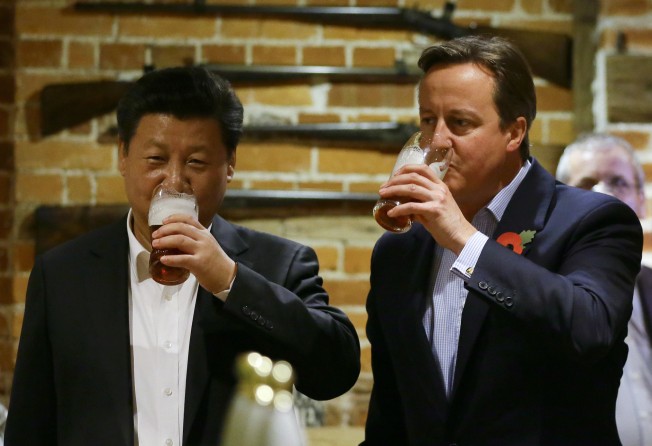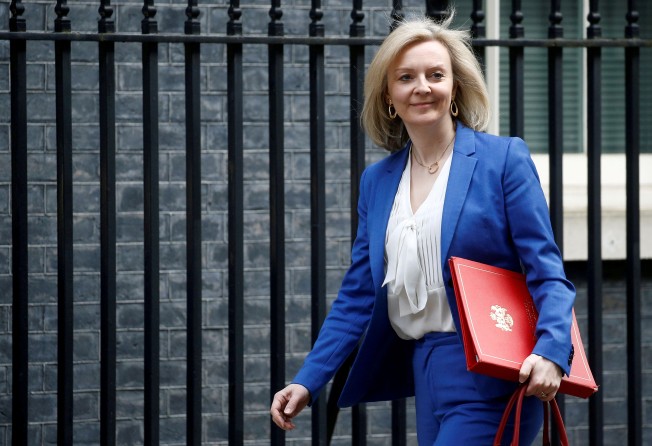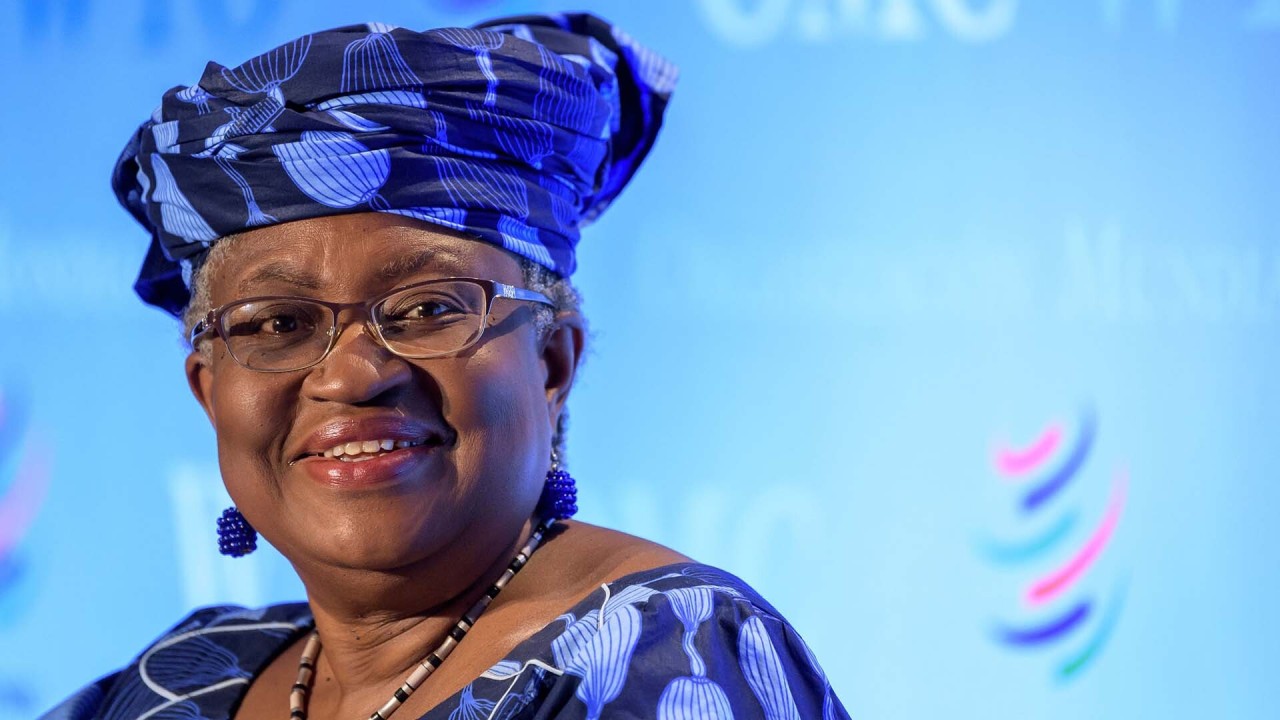
UK trade secretary Liz Truss urges WTO reform to ‘get tough on China and their behaviour’
- Truss told G7 meeting that China should no longer be designated a developing nation, claiming it was ‘ludicrous that some countries can evade market disciplines’
- She also suggested tightening human rights clauses in trade agreements, even though her government recently blocked MPs inserting a ‘genocide clause’ in such deals

UK trade secretary Liz Truss on Wednesday called for urgent reform of the World Trade Organization (WTO) to “get tough on China”, arguing it no longer warrants its status as a developing nation.
Truss made her comments to the media and to the first ever G7 Trade Track Ministerial meeting, which was held online. The UK holds the current presidency of the G7 bloc of industrialised nations, which also includes the larger European economies, the US, Canada and Japan.
“The WTO was established when China was 10 per cent the size of the US economy,” Truss told the Financial Times in an interview before the G7 meeting. “It is ludicrous that it is still self-designating as a developing country – and those rules need to change.
“This is the time to get tough on China and their behaviour in the global trading system, but also modernise the WTO. In many ways it’s stuck in the 1990s.”
Truss appeared to be taking the baton from the former US president Donald Trump who wanted Beijing to lose its status as a developing nation at the WTO, arguing China’s state subsidy programmes distort free trade.

During her address to the G7 meeting, Truss also suggested tightening human rights clauses in trade agreements, even though her government recently blocked British MPs inserting a “genocide clause” in UK trade deals.
“Pernicious practices by non-market economies have given trade a bad name, from forced labour and forced technology transfer to mass unreported subsidies and environmental degradation” Truss said. “It is ludicrous that some countries can evade market disciplines by claiming to be developing nations when they are not.”
Her statements are likely to further irritate Beijing, which had previously sought to work with the UK to reform the WTO, which regulates international trade.
China joined the WTO in 2001. Its access to the global trade watchdog was facilitated by Nick Clegg, a former UK deputy prime minister, when he worked as a trade official for the European Union (EU) in Brussels.
Membership of the Geneva-based body helped propel China’s economy to its current position – it is expected to become the world’s largest economy perhaps as soon as 2032.
Ngozi Okonjo-Iweala, the new director general of the WTO, is a former Nigerian finance minister and foreign minister. China supported her appointment.
Trade experts said Truss’s speech was more spectacle than substance.
“It’s a bit of what the Americans have been saying and what others have been saying,” said David Henig, UK director of the European Centre for International Political Economy. “I don’t think there is a distinctive UK position on WTO. It just wants to show it’s a leading global player after Brexit.”
Any reform would require tight cooperation between the EU and the US but Henig said the WTO has been unable to facilitate a substantial trade agreement between the major powers since its foundation.
Truss promised the G7 will also work with the new WTO leadership to modernise the organisation, particularly in key areas such as digital trade and the environment. Regulation of global e-commerce has so far confounded international trade negotiators.
Many countries have preferred to forge their own multilateral trade agreements. The UK, as part of its post-Brexit pivot to Asia, has applied to join the Comprehensive and Progressive Agreement for Trans-Pacific Partnership, a pact which includes Canada, Australia and Japan as signatories.
The UK has ruled out a quick trade deal with China after relations soured over Hong Kong’s National Security Law and reports of human rights abuses against Uygur Muslims in Xinjiang.
